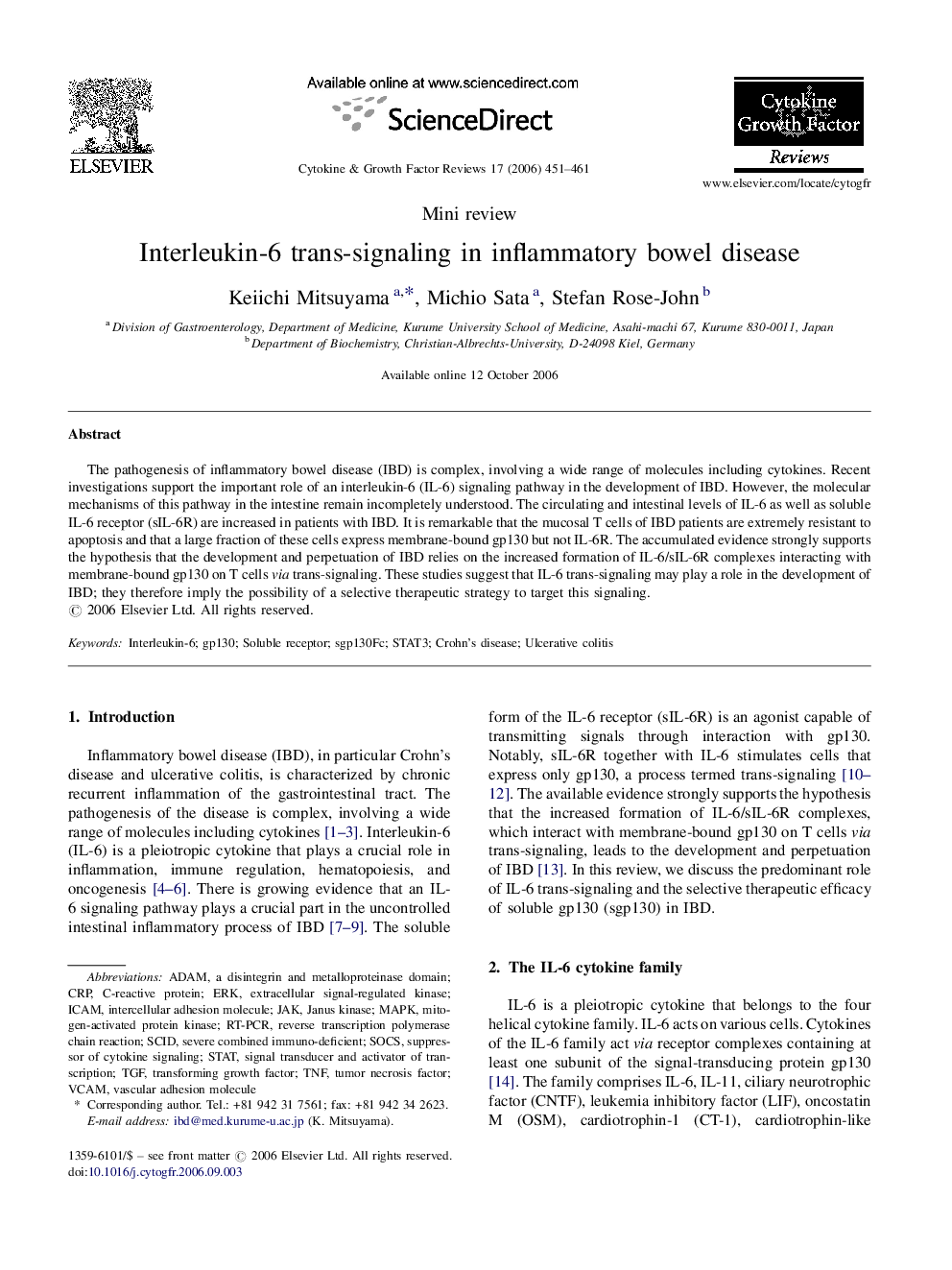| Article ID | Journal | Published Year | Pages | File Type |
|---|---|---|---|---|
| 2170930 | Cytokine & Growth Factor Reviews | 2006 | 11 Pages |
The pathogenesis of inflammatory bowel disease (IBD) is complex, involving a wide range of molecules including cytokines. Recent investigations support the important role of an interleukin-6 (IL-6) signaling pathway in the development of IBD. However, the molecular mechanisms of this pathway in the intestine remain incompletely understood. The circulating and intestinal levels of IL-6 as well as soluble IL-6 receptor (sIL-6R) are increased in patients with IBD. It is remarkable that the mucosal T cells of IBD patients are extremely resistant to apoptosis and that a large fraction of these cells express membrane-bound gp130 but not IL-6R. The accumulated evidence strongly supports the hypothesis that the development and perpetuation of IBD relies on the increased formation of IL-6/sIL-6R complexes interacting with membrane-bound gp130 on T cells via trans-signaling. These studies suggest that IL-6 trans-signaling may play a role in the development of IBD; they therefore imply the possibility of a selective therapeutic strategy to target this signaling.
